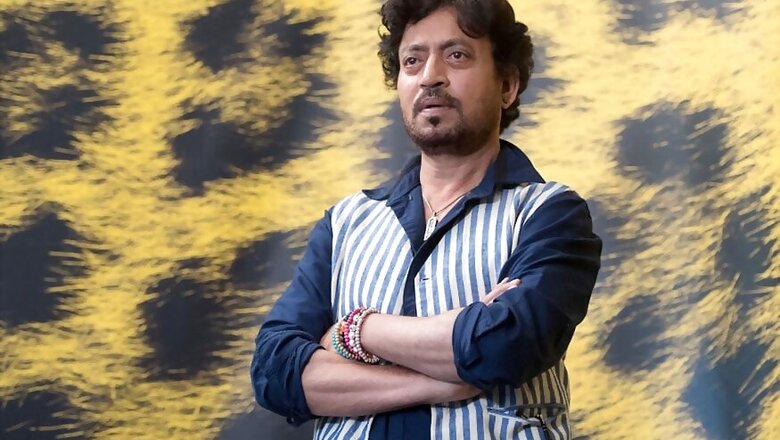
views
During the premiere of Namesake, Irrfan Khan, who had brought his mother along, had asked her if she liked his performance. Instead of answering his question, his mother, Sayeeda Begum, asked where the film's director was. When Khan pointed towards Mira Nair who was also present at the event, his mother said, 'Bula usko. Usko mera baccha hee mila tha maarne ke liye?'
Unfortunately, today, neither Begum nor her beloved baccha, are alive. While Begum passed away in her Jaipur home due to age related illness last week, her son, the national award winning actor, Irrfan Khan, breathed his last in Mumbai on Wednesday. But Ashoke Ganguli, the character Khan played in Namesake, lives, and so does Saajan Fernandes from The Lunchbox, Raana from Piku, Roohdaar from Haider, Miyan Maqbool from Maqbool and they will continue to draw new generations of Bollywood viewers for years to come, and make them fall in love with cinema.
In one of his old interviews Khan had said, "I could never work for money alone. My soul has to be engaged in my work." The oeuvre of work that he leaves behind him today is a testimony that he has indeed succeeded in doing that, he has imbued each and every character of his with a piece of his soul. His measured, and silent performances have often been most hard-hitting, but even in hammy Bollywood flicks, he had somehow managed to inject sincerity and beauty.
However, his contributions to Bollywood aren't just the wonderful roles he played in his career, but also the pathways he opened for newcomers like Nawazuddin Siddiqui and Rajkummar Rao. Had Khan with his powerful and magnificent performances in films like Haasil and Maqbool not pushed content driven stories from the hinterland of India to the forefront of mainstream Bollywood, where would all those wonderful Anurag Kashyap sagas, raw stories of Tigmanshu Dhulia and Vishal Bharadwaj's award winning films be?
In Aseem Chhabra's book, Irrfan Khan, The Man, The Dreamer, The Star, we get a rare glimpse of what pushed Khan towards acting, and gave India one of it's most talented actors. In the book, Chhabra paints a portrait of the artist as a young man. He writes:
His parents did not encourage Irrfan and his siblings to watch films. An uncle who lived in Tonk would take the kids to the movies when he visited Jaipur. He recalled watching Dharma (a 1973 film starring Rekha and Navind Nischol) with this uncle. And during his school days Irrfan watched Naya Daur (1957), starring Dilip Kumar. "There was something mysterious and fascinating in what these actors were doing," he said in Selfie.
"I wanted to know that and do it." But he could not share his dream with anyone. As it is, he felt that physically he did not have the traits to become an actor, let alone a star. He knew he had a dark skin tone, his hooded eyes were often red in colour from all the time he spent out in the sun flying kites and he was rather shy. But the desire to become an actor had taken root within him from a very early age. During his teenage years, Irrfan saw two film shoots in Jaipur — Ganga Ki Saugand (1978), starring Amitabh Bachchan and Rekha, and a couple of years later, Jalmahal (1980), starring Jeetendra and Rekha again. During the shoot of Jalmahal, Irrfan noticed the director explain the role to Jeetendra. "And I thought to myself, if he can explain, then why can't he play the role himself?" Irrfan said, laughing on Vinay Pathak's show.
Irrfan was concerned about his own looks and he often wondered if he could become an actor. And then he saw Mithun Chakraborty in Mrinal Sen's National Award-winning Mrigayaa (1977). "If he could become an actor, then perhaps I could also try," he said.
Apart from Chakraborty, another actor who really inspired Khan was Naseeruddin Shah. In his book, Chhabra writes about Khan's NSD (National School of Drama) days and his obsessive need to emulate Shah:
In the 1980s, the young students at NSD had a few role models — actors with independent spirits who were pioneers in the new wave or parallel cinema movement, and Naseer was definitely one of them, along with Shabana Azmi, Smita Patil and Om Puri.
"We would all tease him (Irrfan) about it," Mita Vashisht says. "It was like, 'Arre yaar Irrfan, Naseer ko chhod do (Please, Irrfan, forget about Naseer).' But it was how he wanted to approach a role, the way he wanted to perform. We often saw Naseer in his performances."
Years later Irrfan was honest enough to confess to Naseeruddin Shah how much the senior actor had inspired him. "I am glad he didn't try to become another Naseeruddin Shah, and discovered his own identity," Naseer says. "He told me, 'My mother used to curse you.' So I asked, 'Why yaar?' and he said, "Tum uss Naseeruddin Shah ki nakal kar rahe ho. Woh to pahunch gaya, aur tum kahan ho (You always imitate that Naseeruddin Shah. He has made it big, and where are you)?" So finally when he made it, I said, 'Yaar, apni ammi ko mera salaam kehna. And tell her ki main itna bura example nahi tha (My friend, give my salaam to your mother. And tell her that I was really not that bad an example).'"
Success arrived late for Khan but he waited for it with patience and grace. He won a National Award for Paan Singh Tomar, and several Filmfare awards during his three decades long career. He also bagged the Padma Shri in 2011.
However, beyond Bollywood too, Khan's talent and potential was immensely appreciated. He had important roles in Hollywood films like Life of Pi, Jurassic Park, Slumdog Millionaire, as well as The Amazing Spider-Man. However, his most meaty and loved role in an English film came with Namesake, directed by Nair. According to Chhabra's book, Nair was sure from the start that she wanted to cast Khan as Ashoke. In the book, Chhabra writes:
Directing Irrfan was like working with a friend, as Mira recalls. "He could tell by looking at my face if I was happy or not with a shot," she says. She remembers shooting one of the most beautiful scenes when Ashoke and Gogol are in a car and the father explains the significance of Nikolai Gogol to his son.
"He did that scene very nicely, but I was looking at him like a puppy after that," she says. "And he asked, 'Kuch chahiye naa, tujhe (You need something else, right)?' And I said, 'Haan, halka sa ankh mein ansoon, magar neeche nahi ana chaiye (Yes, a slight tear in your eye, but it should not roll down your cheek).'
And he said, 'Theek hai, Mira (All right, Mira).'..."
The above excerpt has been published with permission from Rupa Publications.










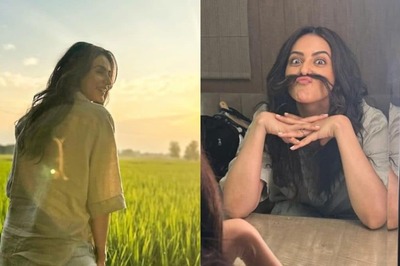

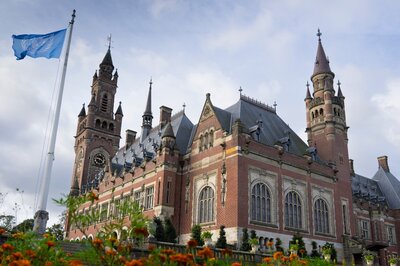

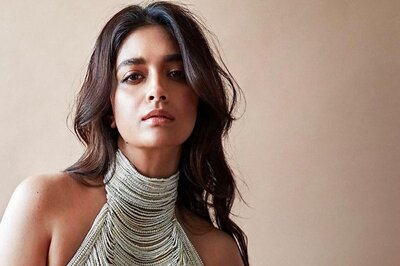


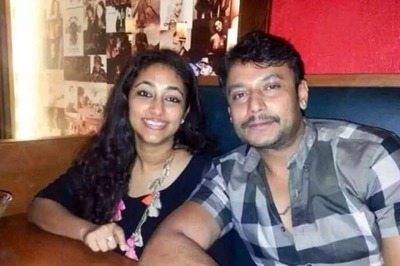
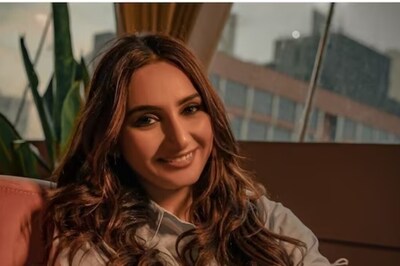

Comments
0 comment